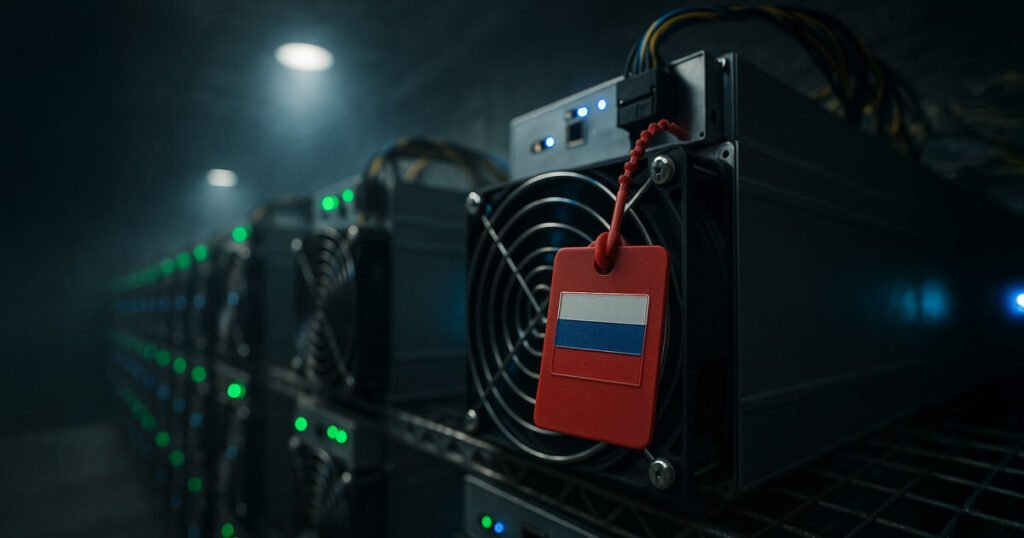Russia Introduces Bitcoin Mining Equipment Registry: A Step Towards Regulation
The Russian Ministry of Energy has taken a significant step in regulating the burgeoning cryptocurrency mining industry by introducing a nationwide registry for Bitcoin mining equipment. This move aims to bring order to a sector that has largely operated in the shadows and to enforce tax regulations effectively. The registry is the fruit of a collaborative effort between the Ministry of Energy, the Federal Tax Service, and the Ministry of Digital Development, marking a critical shift in the government’s approach to cryptocurrency oversight.
The Purpose of the Registry
The primary objective of the newly established Bitcoin mining registry is to identify operators using electricity for crypto mining and to implement proper regulatory oversight. Deputy Energy Minister Petr Konyushenko emphasized the importance of this initiative in formalizing the industry while curbing illegal energy consumption. Currently, only about 30% of cryptocurrency miners in Russia have registered their activities, leaving a staggering 70% unregulated. This lack of oversight poses challenges for the government, which has been striving to control the mining landscape since the nationwide framework was introduced in 2024.
Enhancing Transparency and Enforcement
The initiative reaffirms Russia’s commitment to enhancing transparency within the cryptocurrency mining sector. Deputy Minister Yevgeny Grabchak previously stated that the implementation of this registry would facilitate better enforcement of existing regulations. By tracking miners who consume significant amounts of electricity, authorities aim to minimize illegal mining operations that have continued to persist despite earlier measures. With the rapid expansion of the crypto sector, the government recognizes the necessity for tighter controls to promote responsible energy use.
Conditions Amid Regulatory Challenges
Despite the advancement in regulatory efforts, challenges remain. The federal government has imposed a six-year ban on cryptocurrency mining in ten regions facing electricity shortages, which complicates enforcement. This limitation reflects the complexities of balancing national energy needs with the desire to cultivate a burgeoning digital asset ecosystem. The registry is seen as a way to address enforcement gaps, although the effectiveness of such a measure will depend on continued collaboration among regulatory bodies.
Concerns Over Security Risks
While the introduction of the registry is a positive step towards regulation, there are concerns about the security implications of including wallet addresses. Some experts warn that this information could provide adversarial nations with the means to access sensitive wallet data, potentially leading to geopolitical ramifications. Lawmaker Anton Gorelkin has raised alarms that such exposure could result in unwanted sanctions targeting these wallets, thereby complicating the already complex interactions between Russia and other nations.
The Future of Bitcoin Mining in Russia
As the Russian government seeks to regulate its cryptocurrency mining sector, the expectations are that this move will encourage a more responsible and transparent industry. By tracking miners and enforcing tax regulations, authorities aim to create a level playing field that encourages legitimate operations while discouraging illicit activities. However, the effectiveness of this registry will ultimately hinge on the government’s ability to adapt to the evolving nature of the cryptocurrency landscape and address ongoing security concerns.
In summary, the establishment of a registry for Bitcoin mining equipment in Russia marks a pivotal moment in an increasingly complex regulatory environment. As authorities work to formalize the industry and enforce compliance, the balance between innovation, regulation, and national security remains delicate. The future of Bitcoin mining in Russia may well depend on how these challenges are navigated in the years to come.


